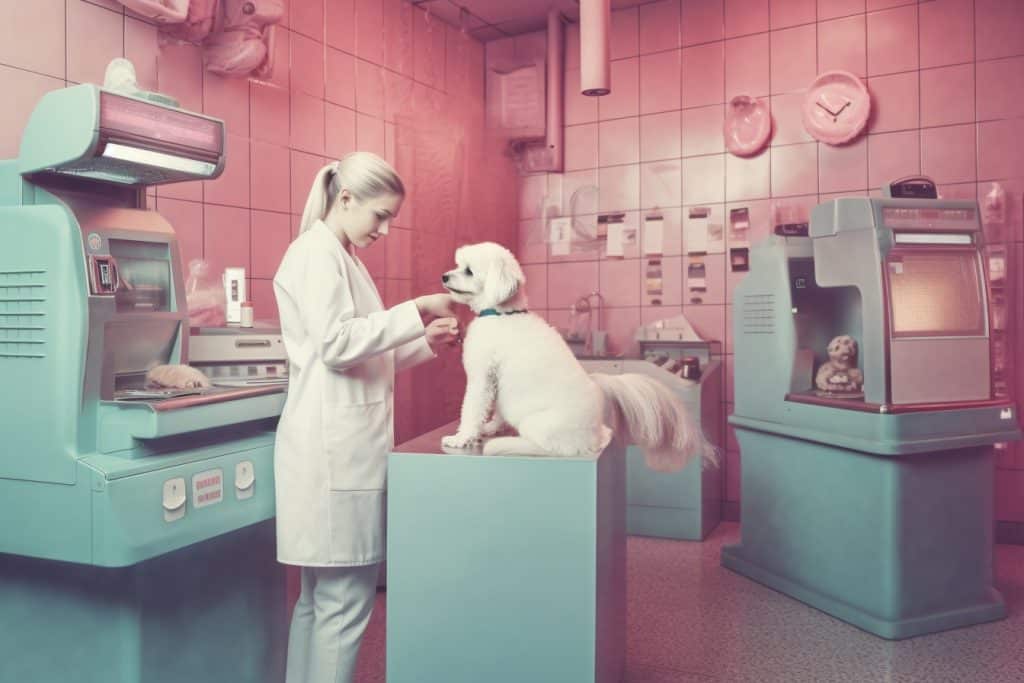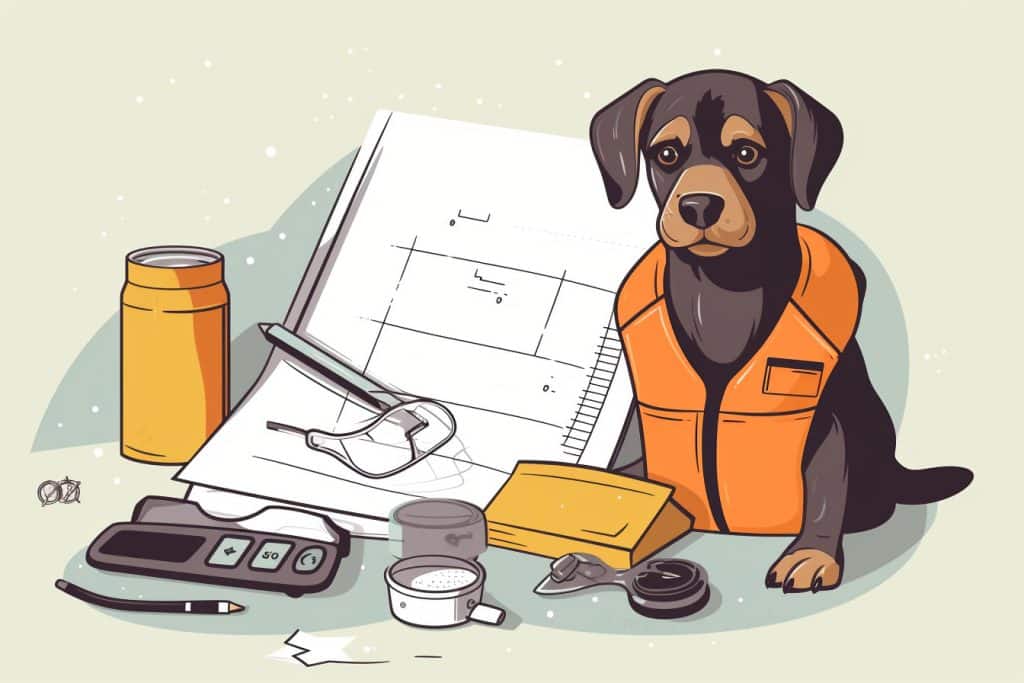As dog owners, we all want the best for our furry friends. We want them to be healthy and happy, and we are willing to go to great lengths to ensure their well-being. That's why it's important to consider whether or not pet insurances are worth the investment. While some might argue that it's better to pay out-of-pocket expenses as they arise, others believe that insurance can provide peace of mind in case of unexpected health issues.
In this article, we'll dive into the pros and cons of pet insurances versus out-of-pocket expenses. By examining the benefits and drawbacks of each option, we hope to help you make an informed decision about how best to care for your pup without breaking the bank. Whether you're a first-time pet owner or have had dogs for years, weighing these options is crucial in ensuring that you're making the right choice for both your pet's health and your financial well-being.
Understanding Dog Insurance
If you're a fur parent who wants peace of mind when it comes to unexpected vet bills, understanding how pet insurances work is crucial. The coverage options and insurance providers available can vary greatly, so it's important to do your research before selecting a plan.

Most policies cover accidents and illnesses, but some may also include routine care such as vaccinations or dental cleanings. When considering pet insurance, it's important to evaluate the cost versus potential benefits. Some plans may have a higher monthly premium but offer more comprehensive coverage, while others may have lower premiums with limited coverage.
It's also important to consider any exclusions or limitations that may apply to certain conditions or treatments. By taking the time to understand your options and what each policy entails, you can make an informed decision about whether pet insurances are worth the investment for your furry friend.
With that said, let's move on to discussing the benefits of pet insurances and how they can provide peace of mind for you and your pup in times of need.
Benefits of pet insurances
When it comes to our furry friends, we all want to ensure that they receive the best possible care. That's where pet insurances come in, providing us with financial protection and peace of mind in case of unexpected illnesses or accidents.
With access to better care and treatments, pet insurances can also help us provide our pets with the highest quality of life possible.
Financial Protection
It's essential to have financial protection in case of unexpected emergencies or illnesses. Budget planning and risk assessment are crucial aspects of responsible pet ownership, especially when it comes to managing the costs of caring for our furry friends.

Pet insurances can provide a safety net that gives us peace of mind, knowing that we won't be caught off guard by expensive veterinary bills. When deciding whether to invest in pet insurance or pay for out-of-pocket expenses, it's important to consider the potential costs involved.
Even routine check-ups and preventive care can add up quickly over time, not to mention the unforeseeable expenses associated with accidents, injuries, or sudden illnesses. By having pet insurance coverage in place, we can mitigate these risks and ensure that our pets receive the best possible care without breaking the bank.
Ultimately, this financial protection allows us to focus on what really matters- spending quality time with our beloved companions and enjoying all the joys that come with pet ownership.
Peace of Mind
Having peace of mind is a priceless feeling when it comes to ensuring our furry friends are receiving the best possible care. While some may argue that out-of-pocket expenses are a viable option for those who can't afford dog insurance, it's important to consider the cost comparison and risk assessment.
Without dog insurance, unexpected medical bills can easily add up and put a financial strain on individuals or families. To weigh the worth of dog insurance versus out-of-pocket expenses, it's crucial to assess potential risks. Accidents or illnesses can happen at any time and without warning, leaving pet owners with costly vet bills.
In addition, as dogs age they become more susceptible to health issues that may require ongoing treatment. With dog insurance, these costs can be significantly reduced and provide peace of mind knowing that your pet's health needs will be covered. However, without insurance coverage, pet owners may feel limited in their ability to seek necessary medical care for their furry friends due to financial constraints.
As we consider access to better care for our pets, it's important to understand how different options impact both our finances and our ability to provide comprehensive healthcare for our beloved companions.
Access to Better Care
You deserve peace of mind knowing that your furry friend has access to the best possible care, without worrying about financial constraints. With pet insurances, you can have just that – easy and affordable access to veterinary services and advanced treatments.

Pet insurances provide the means for pet owners to take their pets to the vet when they need it, instead of holding off due to financial concerns. This helps ensure that pets receive prompt medical attention before a small issue turns into a bigger problem.
Moreover, some pet insurance plans offer coverage for advanced treatments like chemotherapy or surgery, which can be costly if paid out-of-pocket. These treatments may save your pet's life or significantly improve their condition, but they are often expensive and unattainable without proper coverage.
With pet insurances, you can give your furry friend the best chance at a long and healthy life by providing them with access to top-notch medical care. However, there are drawbacks to consider when opting for pet insurance over out-of-pocket expenses.
Drawbacks of pet insurances
Paying for pet insurance may have some downsides that could leave you feeling frustrated. Despite the benefits of coverage, there are certain drawbacks to consider before committing to a plan. Here are four potential issues to keep in mind:
-
Coverage Limitations: Pet insurances can provide peace of mind when it comes to unexpected veterinary expenses. However, most policies come with limitations on what they will and will not cover. For example, many plans exclude pre-existing conditions or limit coverage for certain procedures.
-
Premium Costs: Pet insurance premiums can be expensive and often increase as your pet ages or requires more extensive medical care.
-
Deductibles: Most pet policies require payment of a deductible before coverage kicks in, similar to human health insurance.
-
Reimbursement Time: Even if you have comprehensive coverage, reimbursement for vet bills can take time, leaving you responsible for upfront costs.
While pet insurance has its drawbacks, it's important to weigh these against the risks and financial burdens associated with out-of-pocket expenses.
Out-of-Pocket Expenses
If you're a pet owner, it's always good to be prepared for unexpected veterinary expenses that may arise. One way to do this is by budget planning and setting money aside each month in case of emergency. This method can help alleviate the stress of having to pay for unexpected costs out-of-pocket.
However, it's important to keep in mind that even with budget planning, some unexpected costs may still be too high to handle alone. In these cases, pet insurances can provide the financial support needed without causing major financial strain. It ultimately comes down to weighing the worth of paying a monthly premium versus potentially facing large bills in the future.
Making an Informed Decision

Now that we've discussed the potential expenses that could arise from owning a dog and paying out-of-pocket for their medical care, it's important to weigh our options and make an informed decision about whether or not pet insurances are worth the cost.
While some may argue that it's better to pay for medical expenses as they come up rather than investing in insurance, there are several factors to consider when making this choice.
Firstly, it's important to do a cost analysis of your current financial situation and see what you can realistically afford. Consider the following:
- How much money do you have saved up for emergencies?
- What are your monthly expenses and how much wiggle room is there in case of unexpected costs?
- How much would annual premiums for dog insurance be compared to potential out-of-pocket costs?
- Are there any pre-existing conditions or breed-specific health risks that could increase medical expenses?
Taking the time to weigh these options can help you make an informed decision about whether or not pet insurances are worth investing in.
Remember, while paying out-of-pocket may seem like a cheaper option at first glance, unforeseen circumstances could end up costing you more in the long run.
Frequently Asked Questions
What are the most common health issues that pet insurance covers?
When it comes to dog insurance, one interesting statistic is that 1 in 3 pets will require unexpected veterinary care each year. That's where preventative care and coverage for unexpected emergencies come into play.
Most pet insurance plans cover a range of common health issues, including accidents, illnesses, and hereditary conditions. Some policies may also offer coverage for routine exams, vaccinations, and dental cleanings.
By investing in dog insurance, pet owners can have peace of mind knowing that their furry friend's healthcare needs are covered without having to worry about the financial burden of unexpected vet bills.
Can I get pet insurance for a senior dog?
Senior dog coverage is an important consideration when looking for a dog insurance policy. While some providers may have limitations on coverage for older dogs, there are still options available that provide comprehensive coverage for senior pups.
It's important to carefully review the policy limitations and exclusions to ensure that the plan you choose provides adequate coverage for your pet's specific needs. With proper research and consideration, finding a suitable plan with senior dog coverage can provide peace of mind and protection for your furry companion.
How do I know if my dog's breed is considered high-risk and will require higher insurance premiums?
When it comes to pet insurances, one important factor to consider is whether your dog's breed is considered high-risk.
Dog breed risk assessment is a process used by insurance companies to determine the likelihood of certain medical conditions based on a dog's breed. This, in turn, can affect premium pricing factors and potentially lead to higher insurance premiums for some breeds.
It's important to research your specific breed and understand any potential health issues they may be prone to before making a decision about pet insurance.
At the end of the day, we all want our furry friends to be healthy and happy, but it's also important to weigh the costs and benefits of pet insurances versus out-of-pocket expenses.
As they say, “you can't have your cake and eat it too,” but with careful consideration and research, you can make an informed decision that gives you peace of mind while allowing for financial freedom.
Are there any exclusions or limitations in dog insurance policies that I should be aware of?
When considering dog insurance policies, it's important to be aware of any exclusions or limitations that may apply.
One common exclusion is pre-existing conditions, which means that any medical issues your dog had before you purchased the insurance will not be covered.
It's also important to check for maximum payout limits, as some policies may have a cap on how much they will pay out for certain treatments or procedures.
These exclusions and limitations can significantly impact the value of the insurance policy and should be carefully considered before making a decision.
How do I file a claim with my pet insurances provider?
When it comes to filing a claim with your pet insurance provider, the process can seem daunting at first. However, it's important to remember that this is why you have insurance in the first place – to help alleviate the financial burden of unexpected veterinary costs.
The claims process typically involves submitting a claim form along with any relevant invoices or receipts from your vet. Once your claim is processed, you'll receive an insurance reimbursement for the covered amount.
It's important to carefully review your policy and understand what expenses are covered and what exclusions may apply. While navigating the claims process may require some effort on your part, ultimately it can provide peace of mind knowing that you're financially protected in case of unexpected medical expenses for your furry friend.
Closing thoughts
In conclusion, deciding whether to opt for pet insurances or out-of-pocket expenses requires careful consideration of various factors.
While pet insurances provide peace of mind and financial security in case of unexpected accidents, illnesses, or injuries, it also comes with certain drawbacks such as premiums, deductibles, and coverage limitations.

On the other hand, out-of-pocket expenses may seem more cost-effective initially but can quickly add up if your furry friend requires expensive treatments or surgeries.
Ultimately, making an informed decision depends on your personal circumstances and priorities. If you have a young or active dog that's prone to accidents or illnesses, investing in comprehensive pet insurances may be a wise choice.
However, if you have a senior or low-risk dog that has few health issues and requires only routine check-ups and vaccinations, paying for their medical bills out-of-pocket may be more feasible.
Regardless of your choice, remember to prioritize your pet's health and well-being above all else.



